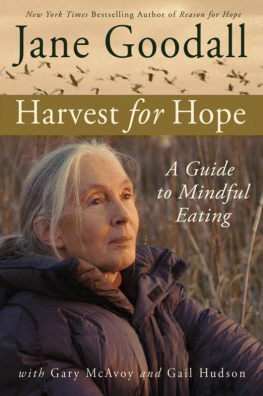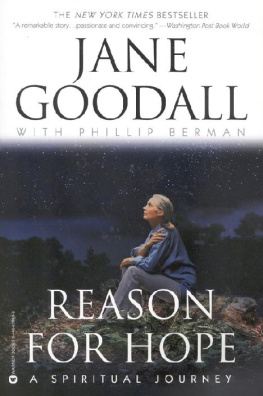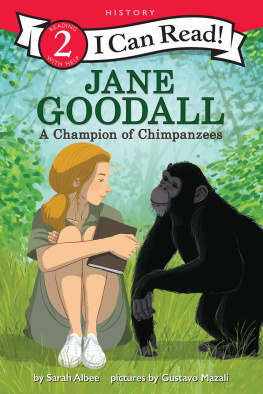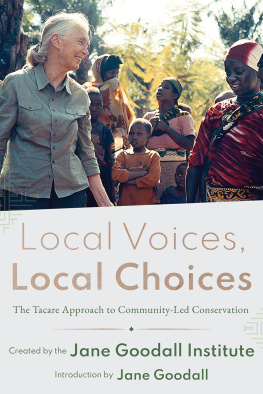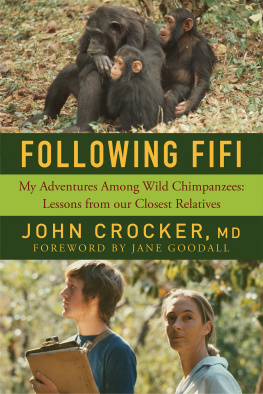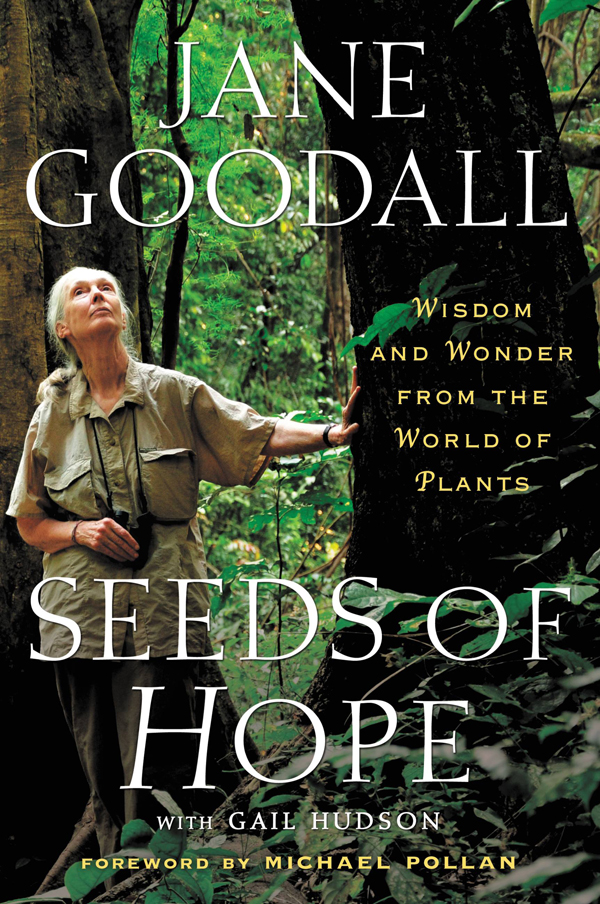
My first reaction upon learning that Jane Goodall was taking a break from animals to write a book about plants was that this was very good news indeed for the plants. Plants dont get nearly as much ink or respect as the animals do, something Ive always felt was deeply unfair, if entirely understandable. Animals are much easier for humans to identify with, sharing with us, as they do, such traits as consciousness, emotion, locomotion, and communication skills. You can tell stories about animals that have the same dramatic shape as stories about people, with heroes and villains, journeys and conflicts. Thats not so easily done with plants, which seem simple by comparison and rather opaque.
It is worth remembering that before Jane Goodall came along and introduced us to a society of chimpanzees at Gombe, in Tanzania, even the primates seemed much simpler and more opaque to usmuch more difficult for us to identify with. It was her meticulous observation and chronicling of the lives of Mike and Humphrey, of Flo and Gigi and Frodoall of them chimpanzeesthat demonstrated once and for all that animals were far more like us than we had imagined or cared to admit. They, too, made and used tools, learned and passed on cultural information, and formed communities of individuals with distinct personalitiesa word that in light of her work needs some rethinking. More than any other scientist or writer I can think of, Jane Goodall expanded the circle of human empathy to take in the emotional lives of other creatures.
Im not sure whether plants have emotional lives exactly, but anyone who reads Seeds of Hope cannot fail to come away thinking that they are far more complicated and interesting creatures than we give them credit for. I suspect the habit of underestimating them has its roots in our self-centered definition of what constitutes complexity or sophistication. We prize things like self-consciousness or abstract reasoning or language simply because these have been the destinations of our own evolutionary journeythe particular tools we evolved to help us cope with living on this earth. Yet the plants have been evolving even longer than we have, evolving their own tools for living, and these are easily as sophisticated as ours, just different. So while we were working hard on locomotion and consciousness, they were getting really, really good at biochemistry, up to and including their mastery of the astonishing trick of eating sunlight and turning it into food. Photosynthesis might be a skill hard for us to identify with, butyouve got to admitit puts something like the opposable thumb, or even trigonometry, right in its place. The world could get by just fine without those little tricks, but without photosynthesis it would be a much, much duller place, lacking, among a great many other things, us.
In the pages of Seeds of Hope, Goodall introduces us to plants capable of the most extraordinary biochemical feats. There are the trees that alert one another to the arrival of an insect pest, causing the entire forest to produce compounds that render the flavor of its leaves unappetizing to the bug. (Who said plants dont have communication skills?) And though plants may not themselves possess consciousness, at least as we understand it, they do know how to manipulate the consciousness of other supposedly higher creatures, manufacturing chemical compounds that can change animal minds in the most striking waysand thereby get the animals to do the bidding of the plants. We meet plants in this book that are masters of metaphor and simulation: carrion plants that mimic the stench of rotten meat to lure insects, and orchids that adorn themselves so as to resemble the hindquarters of female bees. Why? To trick credulous male bees into performing acts of pseudocopulation that, unbeknownst to them, are actually acts of pollination. In fact there are so many stories in this book of plants getting the better of animals that you really have to wonder which kingdom of creatures is really calling the shots, even in an enterprise as seemingly humanocentric as agriculture. To read Seeds of Hope as a member of the animal kingdom is, among other things, a humbling experience.



